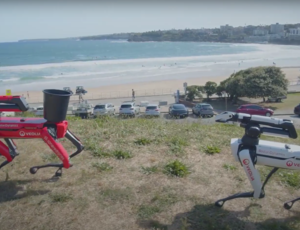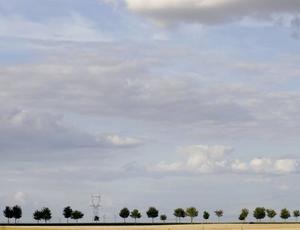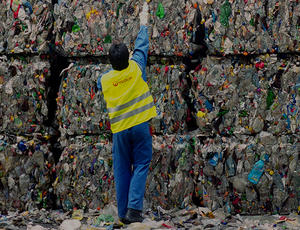Veolia continues to drive stronger workplace safety measures while accelerating the transition to a circular economy, including through the use of augmented artificial intelligence (AI).
Augmented AI, unlike other forms of artificial intelligence, is specifically designed to partner with human operators, not replace them.
It is an integral part of Veolia’s material recycling facilities where human and algorithm sorting processes combine. Scanning lasers and precision jets of compressed air help to separate light waste while human operators separate heavier material.
Veolia’s Chief Information Officer - Information Systems and Technology, Gaj Premnath, says another example of this is where the company uses image analysis technology with SkyCam satellites to not only detect, but also predict, the likelihood of future leaks and blockages in Australia’s sewers, thereby optimising asset maintenance.
“What makes this particular example successful is that it is scalable, it optimises investment outlay for our customers, and fulfils a role that may otherwise be dangerous or difficult for human operators,” said Mr. Premnath.
“These digital solutions are advancing our mission towards a circular economy”.
As well as employing AI, Veolia is focused on how AI can play a key role in the ecological transformation that will lead to the circular economy of the future.
Recently, Veolia trialled robotic dogs in the community with camera detection intelligence and robotic technology to collect waste. The two dogs - Scoop Doggy Dog and Clean-Up - filled buckets that could hold 14kg of waste, picking up plastic and glass along a beach before returning to a single drop-off point.
While the Robodogs are not ready to become a regular part of community waste collection, they give us a glimpse into a future where AI can be efficiently used to do the jobs that are beyond the human resources currently available.
Mr Premnath said Veolia’s focus is to find the sweet spot where it uses existing technologies and fits them to the demands of its customers, but still has an eye on getting in on the ground floor and blazing new high-tech trails as well.
“Over the coming years we will be working with providers of existing solutions to seek out innovative ways to merge artificial intelligence into our business,” Mr Premnath said.
“But even as we shoot for these goals, we’ll never turn away from our core values that have been with us since we were founded in 1853. No matter what futuristic applications we use at Veolia, our mission remains the same – ecological transformation for the benefit of humanity.”
MEDIA CONTACT
Valeria Cheglov, Head of Communications and Public Policy | +61 0438 494 351| [email protected]
Veolia Group aims to become the benchmark company for ecological transformation. Present on 5 continents with nearly 220,000 employees, the group designs and deploys useful, practical solutions for the management of water, waste and energy that are contributing to a radical turnaround of the current situation. Through its 3 complementary activities, Veolia helps to develop access to resources, to preserve available resources and to renew them. In 2021, the Veolia Group provided 79 million inhabitants with drinking water and 61 million with sanitation, produced nearly 48 million megawatt hours of energy and recovered 48 million tonnes of waste. Veolia Environment (Paris Euronext: VIE) achieved consolidated revenue of 28.508 billion euros in 2021. www.veolia.com/anz





